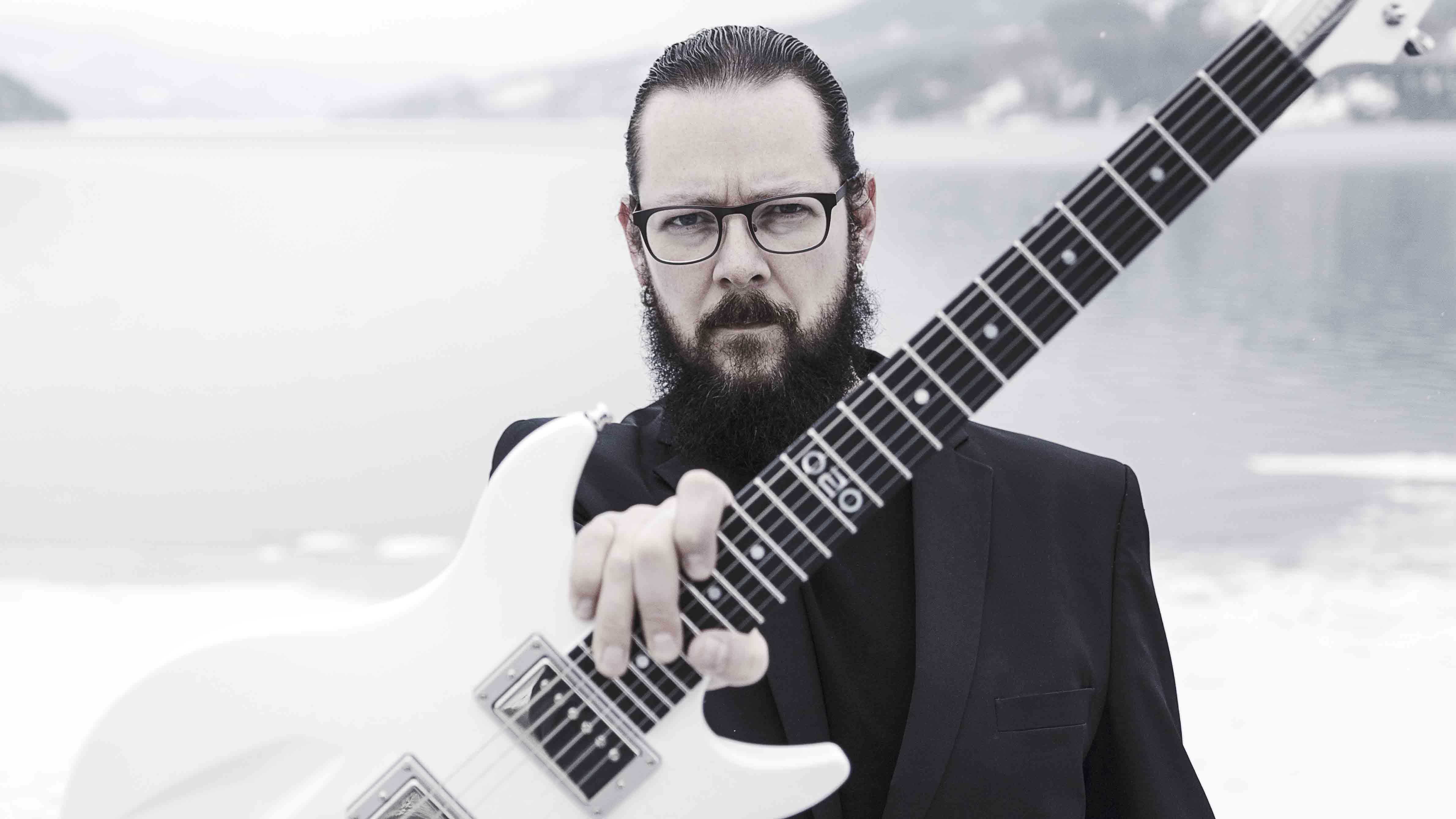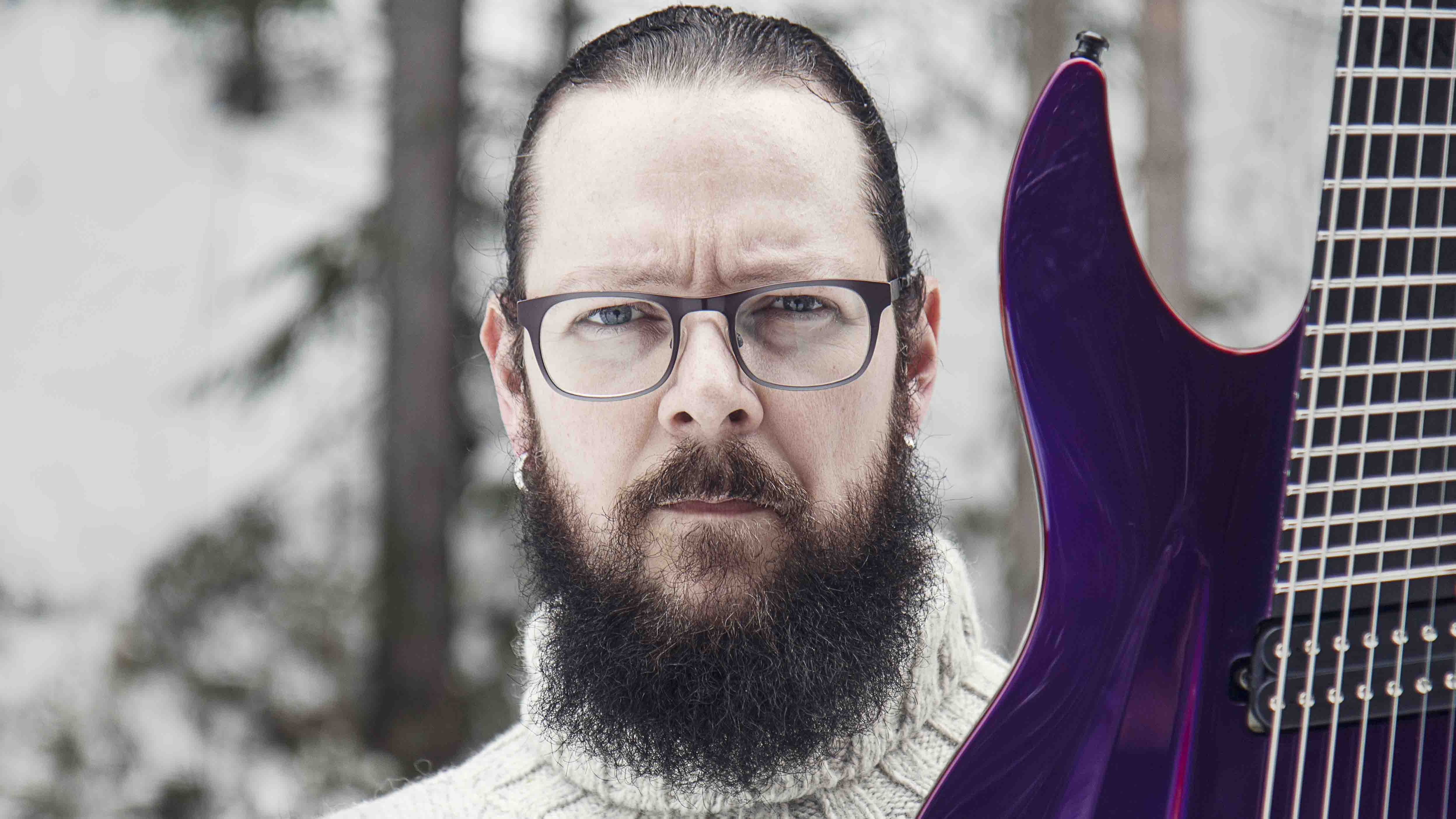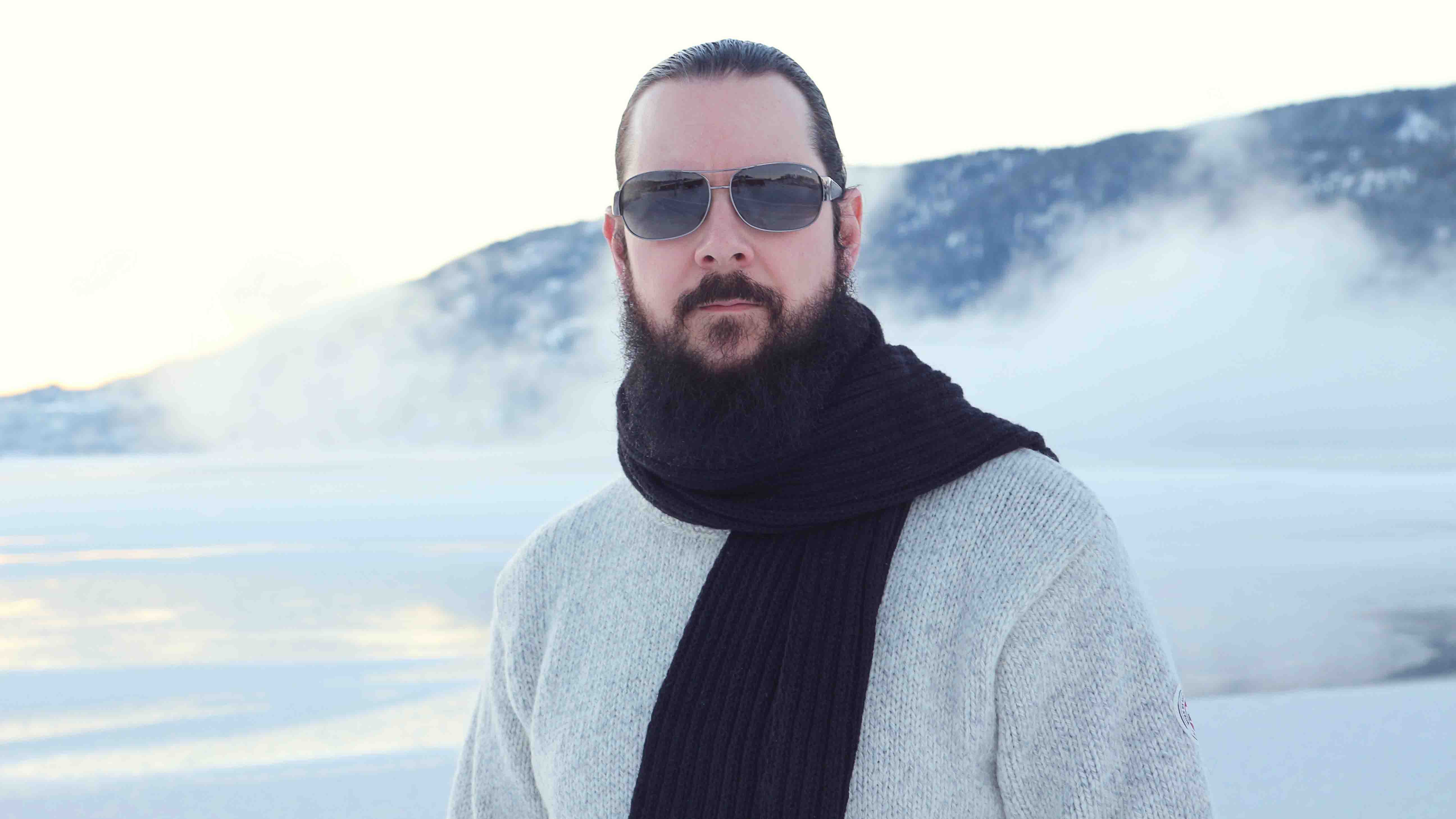Ihsahn talks guitar gear overhauls and Emperor's black-metal legacy
Norway's icon of heavy reflects and theorises

Emperor of his domain
When you think about those who have left an enduring mark on the extreme metal scene, Ihsahn would be a name at the very top of the list.
As the founding frontman of Norwegian black metal legends Emperor, he took the heaviest sounds on earth to their greatest symphonic peaks. As a solo artist, he’s continually remoulded the boundaries of sonic extremity - utilising saxophones, synths, and anything else he can find to explore the furthest reaches of his mind.
Ahead of an upcoming solo band appearance at this year’s Ritual Festival in Leeds, taking place on April 8, we celebrate the genre-defining genius over a career now stretching 26 years.
“Sometimes I wonder how it was even possible,” he begins, talking to MR from his home in Notodden, before a typical Tuesday afternoon of tuition with local music students.
“We were just some boys from rural Norway. Whenever I think back to the early days, it’s like we were on the edge of the world. Now I’m coming back for Ritual Festival, as well as rehearsing for a small handful of dates with Emperor - headlining these huge festivals alongside names like Black Sabbath or Deep Purple… how on Earth did that happen?!
“It's a privilege but still a very strange position to be in: playing some of the most hated music in the world and ending up having a career out of it.
“I find it quite funny, actually: I’ve been playing distorted guitars at inhuman speeds screaming my guts out for all these years - which was fine - but bring in a saxophone and everyone starts freaking out. It’s quite ironic.”

None more black
At a time when grunge was killing off the peroxide glam heavyweights that dominated much of the '80s, and even bands like Metallica were starting to soften the edge they built their name on, Emperor were one of the first to emerge in the much-publicised second wave of black metal - a scene which soon became engulfed in controversy through its association with church burnings and violent behaviour.
“We were 100% dedicated to our music because there no big scene,” continues Ihsahn, when asked if it was like his early band was operating on the edge of the world, lost in Scandinavia’s arctic forests far beyond the reaches of any record labels or industry commerce.
“But there was no thought in our minds that this would become a livelihood. There was no potential career; there was just passion.
Our first album had absolutely no commercial ambitions. It was purely artistic motives that drove us and that's why I think people still feel attached to these albums
“It might sound pompous, but our first album had absolutely no commercial ambitions. It was purely artistic motives that drove us and that's why I think people still feel attached to these albums. They were purely a product of that time, not tainted by anything creatively.
“That's why I pay no thought to what the listeners or industry want to hear. I'm still here because of that uncompromising attitude - there's no commercial motivation. Obviously, making a living is very helpful in sustaining the music and the passion, but it has to be in that order.”
With Emperor’s second album, Anthems To The Welkin At Dusk, celebrating its 20th anniversary this year and the band now rehearsing the material for a small handful of shows, their leader retraces his steps back to when he was slowly becoming a figurehead in the most notorious music scene in heavy history.
You almost wonder if it was even possible for him to grasp the sheer magnitude of the sounds that were pouring out of his mind…
“At that point, we were stuck in a strange bubble,” admits the singer/guitarist.
“Emperor is an entity that felt more important to us with time. Anthems… is very special to me because it was the first album written and prepared as a whole - while our debut was a collection of old and new songs. Also, the lyrics on the debut were co-written, but this one was me taking on more lyrics and music.
“That's probably why I'm more personally attached to it. I was finding a lot of death metal to be one-dimensional aggression, so what differentiated black metal was the ability to scream out despair or sadness. It had more emotional depth, in a sense.
“Anthems… was the expansion of the orchestral elements we found on the first album,” he adds.
“I felt like I'd found a formula - extreme metal is usually very set in how it deviates from the traditional pop/rock formula. So my last solo album, Arktis, was me writing regular songs - not trying to sound pop, but rather adopt that mentality.
“I wanted to keep the elements simple, base each song off a few ideas and build from there. That's more of a challenge for listeners, too: when you improvise, they don't know what you're going for! You can get away with anything.”

Changing gear
As for the gear we’ll see on stage at Ritual Festival and the anniversary dates, there’s been a bit of an overhaul. Ihsahn has been an endorsee of Blackstar amps for the best part of a decade, but when it comes to guitars, he’s leaving all the old Ibanez and Jackson models at home in favour of something almost as controversial as the scene he helped spawn…
“I still use my Blackstar amps in the studio and live,” reveals the Emperor leader. “The Artisan 100 with some overdrive pedals can give you a heavy sound that is still punchy and clear. Over the years I've started to use more of those open sounds, rather than the total mess. You want that detail to come through and the Blackstars feel like they can do both - as well as being low-noise.
“But I have to mention my new collaboration with Aristides Instruments,” he enthuses. “I’ve been very privileged over the years; Ibanez built me some amazing guitars. I’ve been lucky to be in a position where I can pick and choose.
Aristides' attitude is very black metal: 'Let’s do something that everybody shuns and prove them wrong!'
“I was skeptical to begin with, because Aristides build instruments purely out of composite material. Most guitar players would probably want to stay away from that - I did, too - but you won’t believe how well they are made and sound. These instruments are resonant; there are no dead spots on the fretboard at all. They have a sustain and clarity which is unbelievable.”
The Dutch company’s against-the-grain mentality is something that reminded the Norwegian of his own creative endeavours…
“I like their attitude; it’s very black metal,” grins Ihsahn. “‘Let’s do something that everybody shuns and prove them wrong!’
“For touring, they are not affected by humidity or temperature at all. They work closely with Tim [Mills] at Bare Knuckle, who has custom-made pickups for the material it’s made out of. So I’m using Aristides pretty much exclusively now…”

The theory of everything
Soon, the metal legend must get preparing for the local students he’s taken on - one of many reasons he won Notodden’s Kommunes Kulturpris [culture prize] in 2002, being the city’s most well-known inhabitant.
Before he goes, what musical guidance does he have to offer MusicRadar readers?
“I think I've been given too much credit for my guitar playing,” he shrugs, humbly.
I focus more on songwriting and arrangement; I haven't really built any proper chops
“I focus more on songwriting and arrangement; I haven't really built any proper chops. It's really a matter of learning parts by heart and relying on that muscle memory. I've learned more in my later years when I've been tutoring students. You have to know what everything is called when you're teaching kids!
“My main advice would be finding someone to explain the simplicity of it all. It took a long time for me to understand all the diatonic scales and positions were relative - because the music theory books presented them as seven separate things.
“I found by accident, just jamming along to Iron Maiden, that I could play G major over an E minor riff. Then I realised the same goes for all of them; they’re all moving parts of the scale. It took me a long time to realise that… there’s almost nothing to it! I was disappointed that I’d been kinda missing out for all these years. If only someone told me to start with, haha!”
Ihsahn headlines Leeds' Ritual Festival on 8 April 2017. Tickets are available from Big Cartel.
Amit has been writing for titles like Total Guitar, MusicRadar and Guitar World for over a decade and counts Richie Kotzen, Guthrie Govan and Jeff Beck among his primary influences. He's interviewed everyone from Ozzy Osbourne and Lemmy to Slash and Jimmy Page, and once even traded solos with a member of Slayer on a track released internationally. As a session guitarist, he's played alongside members of Judas Priest and Uriah Heep in London ensemble Metalworks, as well as handling lead guitars for legends like Glen Matlock (Sex Pistols, The Faces) and Stu Hamm (Steve Vai, Joe Satriani, G3).
